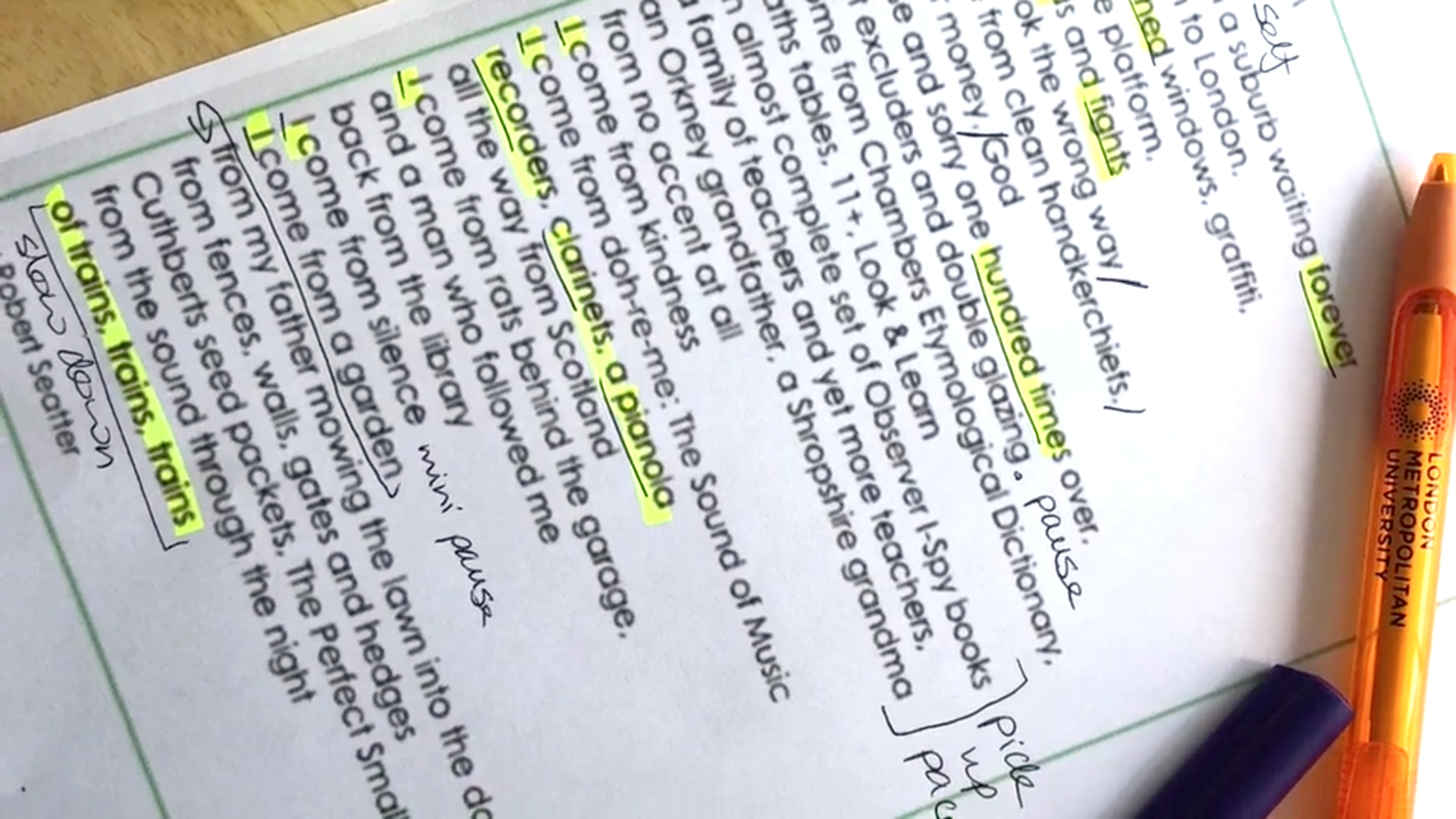By Tory Sandars
Five different techniques for performing poetry, whether it’s your own or someone else’s!
Watch the video below, and don’t forget to share your performances
Tory’s performance of ‘I Come From’ by Robert Seatter
Five top tips for performing poetry
1. Score your script
You can do this by highlighting, underlining, or with dashes. This will help you to bring the words to life. You should think about pacing, where you might take your breath, and making sure that it is coming alive for your audience.
Here is my scored script. You can see that I’ve underlined a lot there, those are the words that I want to emphasise. I’m trying to keep the audience alert, engaged and on their toes.

2. Tell the Story
When we’re are a bit nervous, we tend to talk a little bit faster, and tend to miss things and can skip over things we’re saying, and the audience needs to hear every part of the poem. It’s a kind of story, with a beginning, middle and end and the audience need to hear every part of it.
3. Good Diction
It’s not about changing you natural voice, or putting on someone else’s voice, it’s about pronunciation, making sure you are saying every single word so that the audience can hear and understand.
We can also merge and garble our words too, so that they are not very clear. So watch the video and join along with the face exercises to get your mouth and tongue ready to perform.
4. Natural Movement and Eye Contact
Sometimes what happens when you’re performing poetry is that you become rooted to the spot, arms by your side and unable to gesture at all, or you can go the other way and overemphasise and unnecessary gestures for every single word. So, what you need to do is find a happy medium, where you have natural gestures but not going too far. Try practicing in front of the mirror!
Another thing to think about is eye contact. Nobody wants to watch someone reading poetry when their eyes are to the floor. You need to lift your gaze and make eye contact, making sure you’re taking in every single member of your audience.
5. Have fun!
Performing should be enjoyable, yes we can be a bit nervous and apprehensive but by using these tips, hopefully it’ll make it easier. Remember, it’s all about practice, rehearse and repeat!
Thank you for taking part in the London Metropolitan University Saturday Club Workshop.
Contributed by Tory Sandars, London Metropolitan University Writing&Talking Saturday Club
Tory is course leader for Theatre and Film and also lecturer on Theatre & Performance and Creative Writing at London Metropolitan University.
“I have been teaching on the Writing and Talking Club at London Metropolitan University for the past three years and ever year it never ceases to amaze me. I really enjoy creating and watching the journey that all our members go on from their first week of getting to know each other to seeing their wonderful, creative and imaginative work at the final exhibition. I am so proud of every member that I have had the pleasure of working with and supporting on their path.
“Our Saturday Club has enabled me to use all my skills from across these courses to create workshops that are exciting and engaging for a different age group. I have enjoyed every session and cannot wait for next year.”